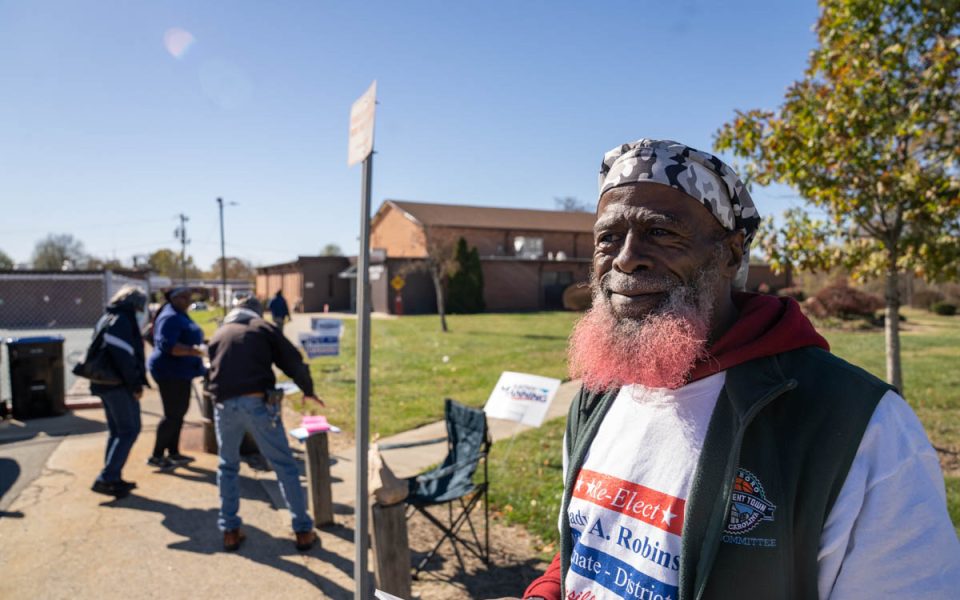Feature Photo: Thomas Clodfelter greets voters on Election Day at Warnersville Recreation Center, Greensboro, NC. [Photo by Carolyn de Berry]
Next Wednesday, Dec. 7, the US Supreme Court is set to hear arguments in Moore v. Harper, a case brought about by NC House Speaker Tom Moore in a continuing effort by GOP leadership to illegally gerrymander the state to their advantage.
Let’s recap, shall we?
All of this goes back to 2013, when SCOTUS gutted the Voting Rights Act of 1965 in a 5-4 decision. The provision they struck from the law was the piece that required several states — Southern, to a one — to get federal approval for any changes to state election laws. The provision was there because every state on that list had passed laws disenfranchising Black voters.
Would you be surprised to learn that NC was one of them?
Pretty much as soon as that decision came down, former NC Gov. Pat McCrory signed an omnibus elections bill that included voter ID and the elimination of so many Black voting precincts that an appeals court judge later wrote, “[T]he new provisions target African Americans with almost surgical precision, they constitute inapt remedies for the problems assertedly justifying them and, in fact, impose cures for problems that did not exist.”
The assertion behind Moore is that the federal government never had the jurisdiction to review our state’s election laws, policies or districts in the first place. It posits that state legislatures and state courts have ultimate authority over every aspect of that state’s election process, including redistricting, early voting, election audits and even official election results. All of this is predicated on an obscure clause in the US Constitution that says, in full, “The Times, Places and Manner of holding Elections for Senators and Representatives, shall be prescribed in each State by the Legislature thereof; but the Congress may at any time by Law make or alter such Regulations, except as to the Places of chusing [sic] Senators.”
The “independent state legislature theory” posits that, particularly after the gutting of the Voting Rights Act, states alone have the right to conduct every aspect of their elections, even in determining the winners despite what voters have indicated.
The News & Observer has a wonderful explainer if you want to learn more.
NC Republicans are not saying much about this upcoming decision, but their mouthpieces in the right-wing media insist that they would never use their power to overturn an election. Lauren Horsch, a spokesperson for NC Senate President Pro Tempore Phil Berger, told the N&O: “The ‘independent state legislature theory’ is a misnomer to scare voters into donating to these extreme partisan causes.”
Which is all well and good, except we don’t believe them.
It’s a pretty safe bet that the Supremes will give NC Republicans what they want. We’ll reserve judgment on their pretense of good faith when we see what they do with it.
CORRECTION: An earlier version of this editorial misnamed the Supreme Court Case — it now reads correctly. TCB regrets the error.
Join the First Amendment Society, a membership that goes directly to funding TCB‘s newsroom.
We believe that reporting can save the world.
The TCB First Amendment Society recognizes the vital role of a free, unfettered press with a bundling of local experiences designed to build community, and unique engagements with our newsroom that will help you understand, and shape, local journalism’s critical role in uplifting the people in our cities.
All revenue goes directly into the newsroom as reporters’ salaries and freelance commissions.


Leave a Reply